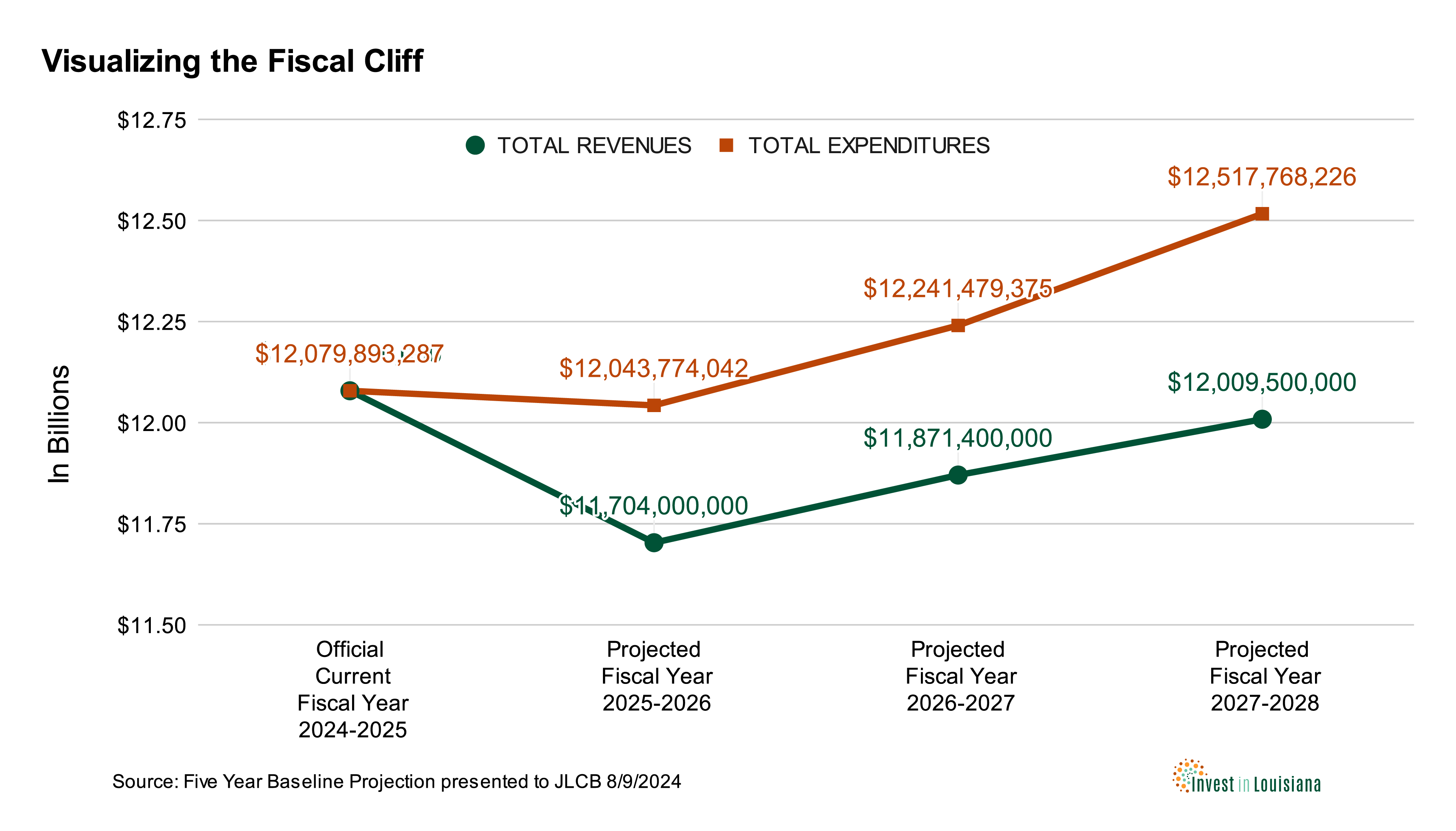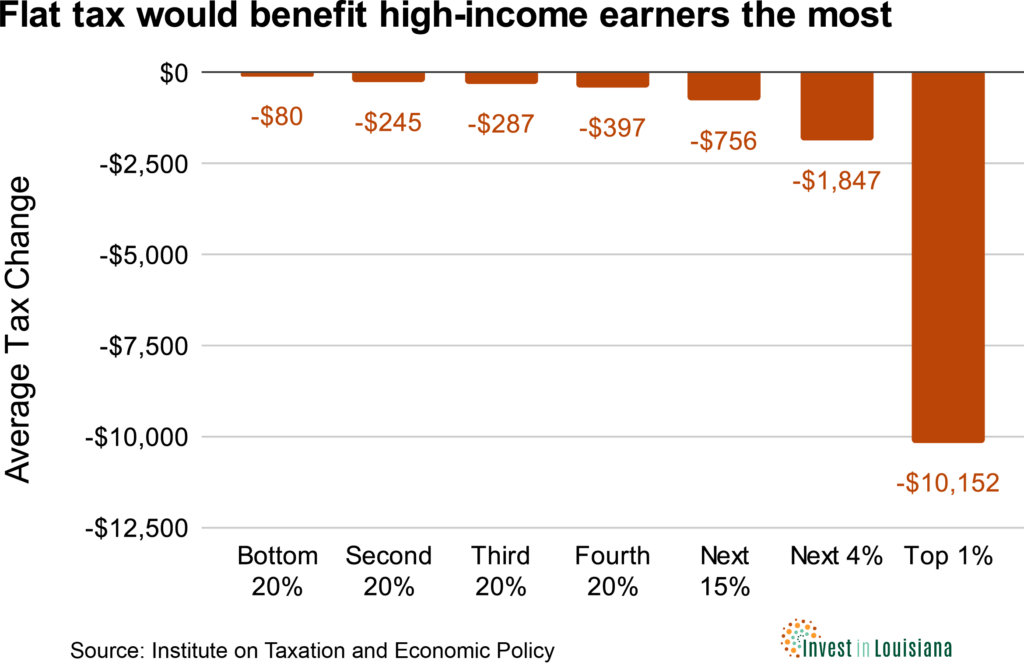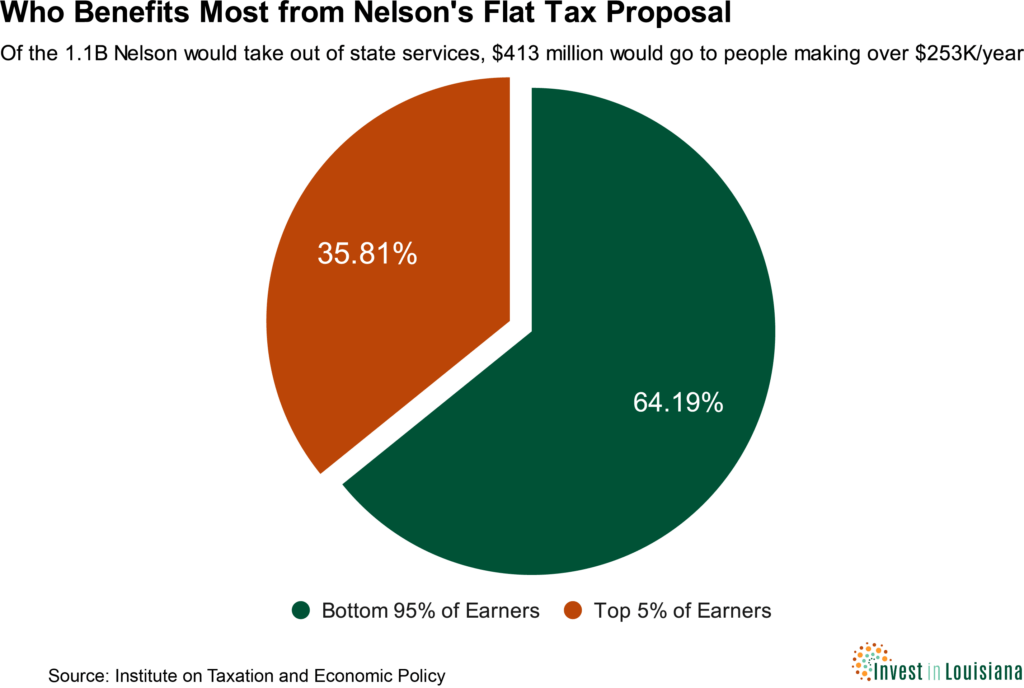Louisiana’s economy works best when all of us have access to high-quality education and training, affordable health care and a strong public safety net that offers support during hard times.
State government is facing a “fiscal cliff” next year that will make it much harder for the state to provide such basic programs and services. More than $650 million in tax revenue that currently supports health care, education, criminal justice and other programs is disappearing from the state’s bank accounts as temporary taxes enacted in previous years are set to expire on July 1.

State policymakers can avoid the fiscal cliff by renewing the expiring taxes, or replacing the lost revenue with other taxes or by closing loopholes in the current tax structure. Unfortunately, Gov. Jeff Landry’s administration has proposed a different plan – a massive income-tax cut that would dig the budget hole even deeper, and possibly force damaging cuts to public services such as health care and education.
The income-tax cut would cost the state more than $1.1 billion per year in lost revenue, according to a new analysis by the Institute on Taxation and Economic Policy. The largest share of the tax cut would go to the top 1% of Louisiana income earners.
The plan presented by Revenue Secretary Richard Nelson would replace Louisiana’s graduated income-tax structure – where the highest rates apply to the highest incomes – with a “flat” tax of 3.5% that would apply to all income above $12,500 (or $25,000 for married couples).

ITEP’s analysis shows that the change Nelson is proposing would mean an income-tax cut for virtually every person who earns income in Louisiana. But the biggest tax cuts, by far, would fall to the highest income earners. More than 35% of the tax cut – $413 million – will benefit the top 5% of Louisiana’s income earners, or those tax filers having income over $254,000.

Taxpayers at the top 1% of household income – those with an average annual income of $1.8 million – would get an average tax cut of $10,152. Middle-income filers, with an average household income of $53,700, would receive a far more modest tax cut of $287 – or about $24 per month.
Louisiana already faces a “fiscal cliff” due to taxes that are expiring in 2025, and a $1.1 billion tax cut would make the cliff deeper and force policymakers to make deep cuts to vital programs or raise other taxes to bridge the gap.
Education funding, which is already under strain, could see further reductions, directly impacting the quality of education for Louisiana’s children. Health care services, particularly those serving low-income and vulnerable populations, could be scaled back, leading to worse health outcomes and higher long-term costs for the state.
Instead of prioritizing a tax cut for the wealthiest Louisiana households, policymakers should work to make the state’s tax structure more fair, stable and predictable, and ensure that the state raises enough revenue each year to make the investments that will drive tomorrow’s economic growth.
